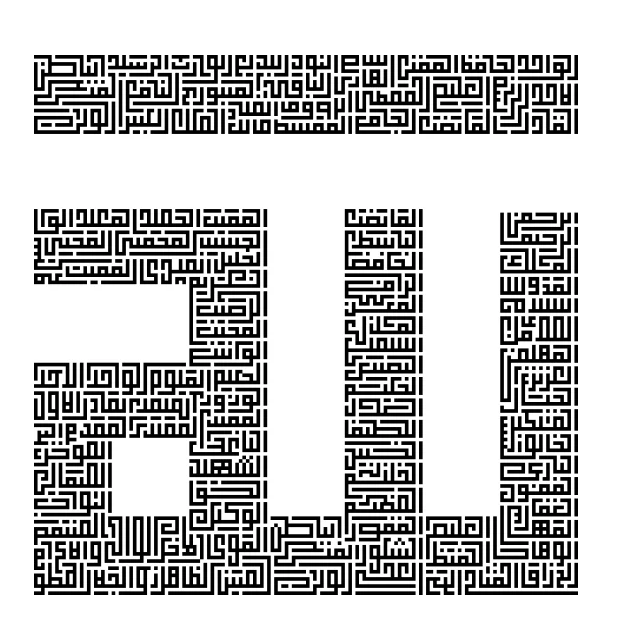Critics of Islam often claim that the Quran “stole” or copied from the Bible. At first glance, both scriptures appear to share common figures like Moses, Noah, and David. However, the Quran actively preserves the essence of true monotheism and restores the dignity of God’s prophets, a dignity that biblical accounts often compromise. Let’s explore why the Quran could not have copied the Bible, and more importantly, why it may stand as the final, uncorrupted message from the very same God.
1. Prophets in the Bible vs. the Quran: Key Contrasts
The Quran clearly teaches that God chooses prophets because they are righteous. On the other hand, the Bible often shows them as people who make serious mistakes or get involved in scandals. Let’s look at some examples:
Aaron (Harun):
Bible: Aaron makes a golden calf and leads the people into idol worship (Exodus 32).
Quran: Aaron tries to stop the people. He tells Moses, “The people oppressed me and were about to kill me” (Quran 20:94). The real culprit is a man named Samiri.
David (Dawud):
Bible: David commits adultery with Bathsheba and arranges her husband’s death (2 Samuel 11). God punishes the innocent child as a result of this affair.
Quran: David makes a small mistake in judgment. He repents and is praised: “We forgave him that. He had a place near Us and a good return” (Quran 38:25).
Noah (Nuh):
Bible: Noah gets drunk, lies naked, and curses his grandson Canaan (Genesis 9:21–25).
Quran: Noah is a patient and wise prophet. He suffers rejection from his people and mourns his lost son, but never behaves indecently (Quran 11:42–47).
Job (Ayyub):
Bible: The Bible shows Job losing faith and even accusing God of injustice during his trials. Satan ends up being right in predicting Job’s failure, which implies he outsmarted God. (Job 3).
Quran: The Quran depicts Job as steadfast and patient, never blaspheming. He attributes his hardship to Satan, not to God, and is praised for his endurance (Quran 21:83).
Lot (Lut):
Bible: Lot gets drunk and fathers children with his own daughters (Genesis 19:30–36).
Quran: Lot is a noble prophet who condemns the sins of his people. He is saved by God, and no indecent act is attributed to him (Quran 26:160–166).
Solomon (Sulaiman):
Bible: Solomon falls into idolatry due to his foreign wives (1 Kings 11).
Quran: Solomon remains faithful. He says, “This is by the grace of my Lord, to test me whether I will give thanks or be ungrateful” (Quran 27:40).
Jesus (Isa):
Bible: Jesus is crucified and dies on the cross (Matthew 27:50). Christianity teaches that his death was necessary for salvation.
Quran: Jesus does not die on the cross. Instead, God saves him (Quran 4:157–158).
These examples show a clear difference: the Quran honors and uplifts the prophets, while the Bible often shows them as flawed or even sinful. So, if the Quran were really copying the Bible, why does it keep correcting the stories and restoring the prophets’ dignity?
2. Monotheism in the Quran vs. Trinitarian Polytheism in the Bible
Christianity teaches the Trinity, but this idea often confuses people. Is God one or three? In contrast, the Quran makes it clear and simple:
“Say: He is Allah, the One and Only.” – Quran 112:1
The Quran leaves no space for any sons of God or partners with Him. It teaches the same clear monotheism that Abraham, Moses, and all true prophets followed.
Interestingly, the Christian idea of the Trinity looks very similar to the Hindu Trimurti — Brahma, Vishnu, and Shiva. This similarity makes people wonder: Did later Christian beliefs borrow from other religions?
Many historians believe that this is exactly what happened. Over time, early Christian teachings took in ideas from Greco-Roman and Hindu traditions, especially through cultural mixing and political decisions. In contrast, the Quran came from a society filled with idols, yet it clearly protected the belief in one God. Meanwhile, the Bible’s message changed over time. Church leaders made decisions in councils and edited the texts, often letting outside influences shape Christian beliefs.
3. What If the Quran Is from the Same God?

Here’s a thought that rarely crosses the mind of those accusing Islam of plagiarism: What if the Quran is actually from the same God — but sent to correct the distortions that had crept into previous scriptures?
The Quran itself makes this claim:
“We have sent down to you the Book in truth, confirming the Scriptures that came before it and guarding them.” — Quran 5:48
Rather than copying, the Quran acknowledges earlier revelations, honors previous prophets, and serves as a final criterion (Al-Furqan) to separate truth from falsehood. It defends the honor of God’s messengers and reaffirms the message of divine oneness. For a deeper understanding of this, read this article on how YHWH and Allah refer to the same God.
Importantly, the Quran never states that it replaces God’s message. Instead, it claims to preserve and complete it. So, if you believe in one God, and if you accept that He has sent messengers throughout history, then it’s reasonable to ask: Could the Quran be the final, purified revelation from that same source?
Conclusion: Who Really Preserved the Truth?
Before accusing the Quran of imitation, it’s important to ask: What does the Quran actually do?
The Quran purifies the story, defends God’s prophets, and emphasizes His oneness. Unlike the Bible, it consistently portrays prophets in a morally elevated way. It also avoids theological confusion and keeps the belief in one God clear and unwavering.
Ultimately, the Quran calls people back to the pure worship of one God — the same message brought by Noah, Abraham, Moses, Jesus, and Muhammad.
So, the real question is: What if it’s not a copy? What if it’s the original? For a deeper comparison, watch this short video: Stories of the Prophets: Bible vs. Qur’an.
Last modified: 04/05/2025


It’s clear that the Quran doesn’t “copy” the Bible—it actually corrects the distortions and restores the honor of the prophets.